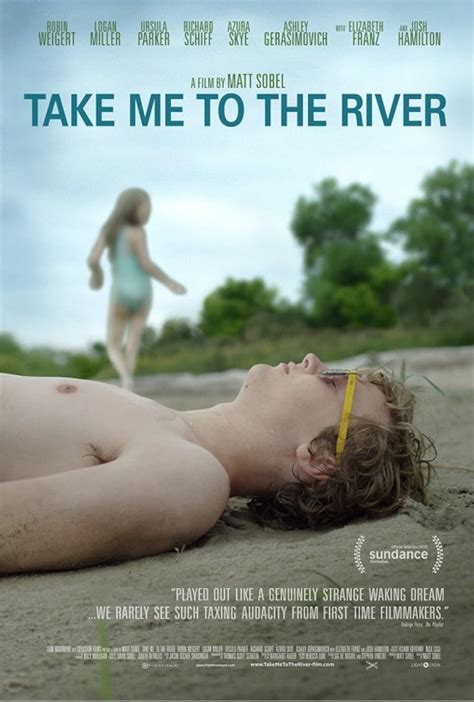Take Me to the River

Description:
Take Me to the River is a 2015 independent drama film that explores the complexities of family dynamics and hidden secrets. The story follows a gay teenager named Ryder who travels from California to Nebraska for a family reunion. As he tries to keep his sexuality hidden from his conservative relatives, a misunderstanding leads to tension and unexpected revelations. The film delves into themes of identity, acceptance, and the intricate web of family relationships, all set against the backdrop of rural America.Keywords:
Family Secrets, Tension, Sexuality, Misunderstanding, Coming Of AgeWho sang the original version of Take Me to the River?
The original version of "Take Me to the River" was sung by Al Green. The song was written by Green and Mabon "Teenie" Hodges and was released in 1974 on Green's album of the same name. It has since been covered by various artists, including Johnny Rivers and the Talking Heads, but Al Green's rendition is the most well-known and influential. The song combines elements of soul, gospel, and funk, showcasing Green's distinctive vocals and heartfelt delivery.
What is the plot of Take Me to the River?
"Take Me to the River" is a 2015 drama that follows a young man named Ryder who travels to Nebraska for his family’s reunion. During the visit, he confronts dark secrets and buried tensions within his family, particularly regarding his identity and the circumstances surrounding his father's death. As the story unfolds, Ryder grapples with his past and the complexities of familial relationships, leading to a tense climax that forces him to confront the truth about himself and his family. The film explores themes of identity, truth, and reconciliation.
How old is Ursula Parker in Take Me to the River?
Ursula Parker was born on March 15, 2000. "Take Me to the River" was released in 2015, which would make her around 15 years old during the filming. In the movie, she plays the character of a young girl, contributing to the film’s exploration of family dynamics and secrets.
What is the meaning behind "Take Me to the River"?
"Take Me to the River" is a 2015 film directed by Matt Sobel that explores themes of identity, secrecy, and the complexities of family relationships. The title references a desire for purification and renewal, akin to the biblical connotations of water as a means of cleansing. The film follows a young man who confronts hidden truths about his family during a trip to a rural community, highlighting the struggle between personal discovery and societal expectations. Ultimately, it delves into the tension between acceptance and the weight of family legacy.
Explore More Categories:
Harassment Character Driven Drama Family Dynamics Truth Meltdown Independent Film Underworld Environmental Collapse Found Family Climate Change Hostage Autoracing Racing Labor Rights Intuition Cultural Insights Pranks Contemporary Realism Mountaineering Dehumanization Occupation Investigative Documentary Class Disparity Father Daughter Pop Culture